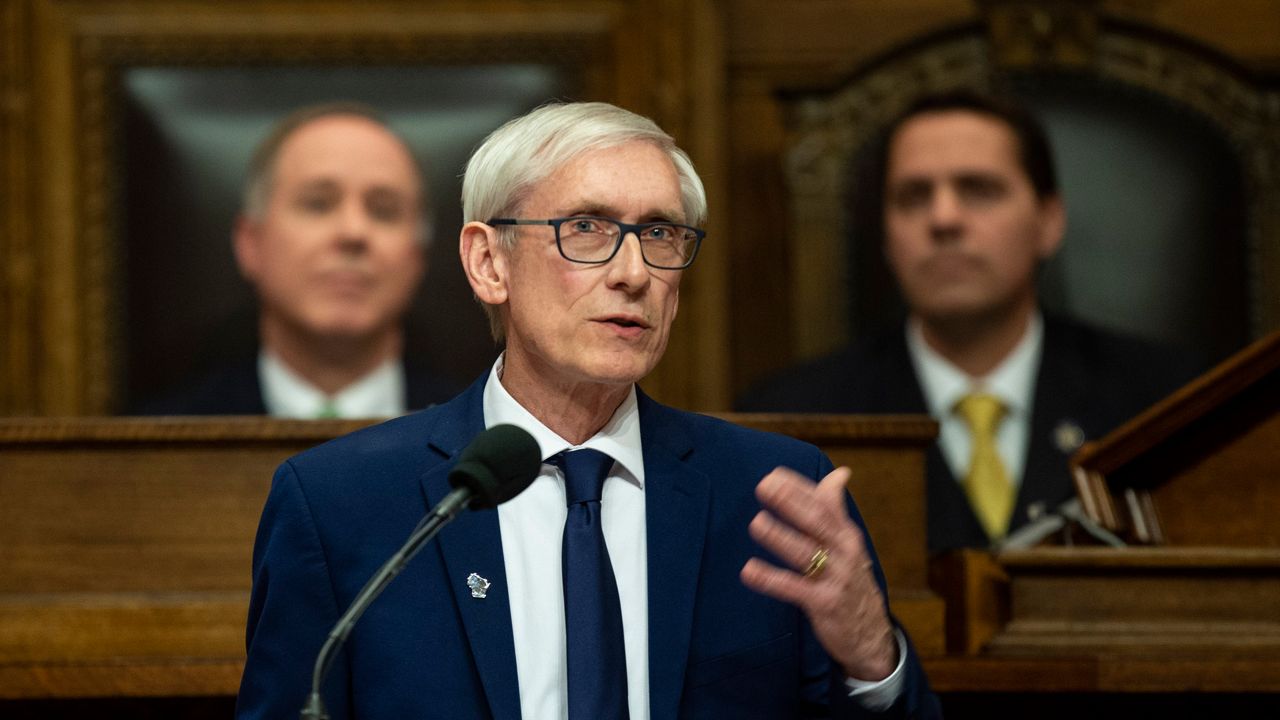MADISON, Wis. (AP) — Gov. Tony Evers has released Wisconsin’s first clean energy plan, a proposal that he said would lower energy bills, fight climate change by investing in clean energy technologies and possibly create up to 40,000 jobs.
The plan is a blueprint for meeting the Democratic governor’s goal of carbon-free electricity generation by 2050 and helping meet the state’s commitment to cutting half of all greenhouse gas emissions by the end of this decade, the Wisconsin State Journal reported.
Evers billed the plan released Tuesday as a way to reduce dependence on fossil fuels and reinvest some of the roughly $14 billion a year spent on imported coal, petroleum, gas and other energy sources, protecting both natural resources and residents’ pocketbooks.
However, the plan released in an election year is just a recommendation. Evers initially called for it in a 2019 executive order.
Wisconsin Manufacturers and Commerce, the state’s largest industry lobbying group, called the plan “unaffordable” and “unrealistic,” claiming it would lead to higher energy prices.
Clean Wisconsin called on state agencies, utilities and lawmakers to act on the recommendations “and create the energy-independent Wisconsin all our communities deserve.”
The plan calls for:
- promoting clean energy technology by expanding incentives in the state’s $100 million ratepayer-funded Focus on Energy program.
- updating emission goals for electricity generation and leveraging existing government programs to support renewable energy and help businesses develop new technologies.
- reducing energy demand across all sectors through new energy efficiency standards and increased funding for Focus on Energy.
- updating commercial building codes.
- using local and low-carbon building materials, scaling up renewable heating and cooling, and using electricity rather than fossil fuels as a heat source.
- supporting the transition to electric vehicles, promoting transportation alternatives to single-occupancy vehicles.
The plan also calls for phasing out the use of natural gas-fired generation and considering the use of nuclear power.
Wisconsin’s only operating nuclear power plant, which produces about 15% of the state’s electricity, is licensed until 2023, though the owners are seeking a 20-year extension. La Crosse-based Dairyland Power Cooperative is exploring small-scale nuclear technology that has not yet been commercially deployed.
Some of the proposals, such as increased funding for energy conservation, have been previously rejected by Republican lawmakers. Others reflect recommendations by utilities and industry groups, who say the clean energy transition could bolster the state’s $28 billion power and controls sector.
Evers said the strategies in the plan “can help us create good paying jobs that don’t require a college degree and bring talented workers to Wisconsin while saving money, reducing energy costs, and building the sustainable future we want for our state.”



